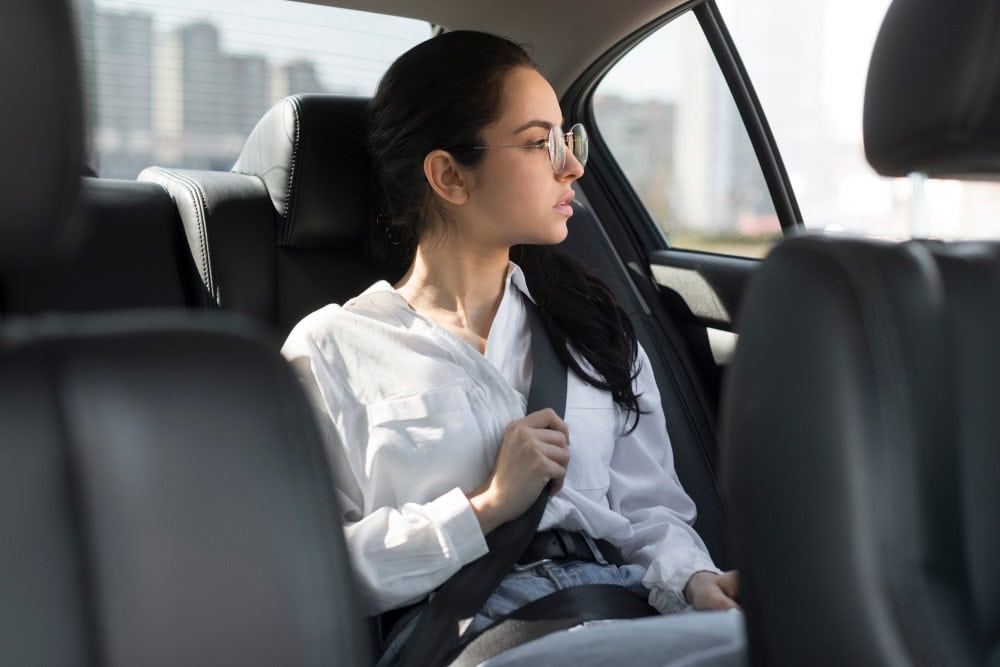
Car accidents are not only physically and emotionally traumatic but can also lead to significant legal ramifications, especially if you were a passenger involved in the collision. As a passenger, you may wonder if you have the right to sue the driver for your injuries and losses. In this comprehensive guide, we’ll explore the intricacies of passenger rights in car accidents in Nevada, offering clarity on whether you can sue the driver, steps to take after being injured, your rights as a victim, and much more.
Your Rights as a Nevada Car Accident Victim
As a car accident victim in Nevada, you have certain rights designed to protect your interests and ensure you receive fair compensation for your injuries and losses. These rights include:
The right to pursue compensation for medical expenses, lost wages, pain and suffering, and other damages.
The right to legal representation. You are entitled to hire an attorney to advocate for your rights and represent your best interests throughout the claims process.
The right to a fair and timely resolution. You have the right to expect a prompt resolution to your case, whether through settlement negotiations or litigation.
Can a Passenger Sue the Driver in an Accident?
If you were injured as a passenger in a car accident in Nevada, you have the legal right to pursue compensation from the at-fault party. This includes the driver of the vehicle you were traveling in, as well as any other negligent drivers involved in the accident. However, suing the driver may not always be straightforward, and several factors must be considered.
Steps to Sue the Driver in an Accident
Here’s a detailed guide on how you can sue the driver in an accident:
Consult with a Car Accident Lawyer: Seek legal representation from a knowledgeable car accident lawyer to guide you through the process.
Gather Evidence: Collect important evidence such as the police report, witness statements, medical records, and photographs of the accident scene and your injuries.
Establish Negligence: Prove that the driver’s negligence or recklessness caused the accident and your injuries.
File a Lawsuit: Your lawyer will file a lawsuit against the driver in civil court, outlining the details of the accident and the damages you’re seeking.
Serve the Defendant: Ensure the defendant is served with the legal documents notifying them of the lawsuit.
Discovery Process: Exchange information and evidence with the defendant during the discovery process, including interrogatories, document requests, and depositions.
Negotiation and Settlement: Attempt to reach a settlement through negotiation with the defendant’s insurance company.
Trial: If a settlement cannot be reached, proceed to trial where both parties present their evidence and arguments to a judge or jury.
Who Is Responsible for the Accident?
The responsibility for the accident depends on the specific circumstances and who was at fault. It could be the driver of your vehicle, other driver, both drivers, or even a third party such as a manufacturer or entity responsible for road maintenance. Determining responsibility typically hinges on factors like negligence, recklessness, or other violations of traffic laws.
Determining Fault in a Car Accident
Determining fault in a car accident is crucial for establishing liability and determining who is responsible for compensating the injured passenger. Here’s how fault is typically determined:
Negligence: The primary factor in determining responsibility is whether any party involved in the accident acted negligently. Negligence refers to a failure to exercise reasonable care, such as speeding, distracted driving, running a red light, or failing to yield the right-of-way.
Police Report: Police investigate the accident and document their findings in a report, including witness statements and scene assessment.
Traffic Laws: Violations like speeding or running red lights indicate negligence and help establish fault.
Eyewitness Testimony: Witness accounts provide insight into the accident’s cause and who may be at fault.
Physical Evidence: Skid marks, vehicle damage, and positioning help reconstruct the accident and determine fault.
Driver Statements: Statements from involved drivers contribute to understanding fault, though caution is needed for accuracy.
Expert Analysis: Accident reconstruction specialists may provide expert analysis on the evidence.
Comparative Negligence: States like Nevada use a comparative negligence system, assigning fault based on each party’s degree of negligence.
Which Driver Should You File Against?
As a passenger, you may wonder which driver you should file a claim against. In cases involving multiple drivers, you can potentially file a third party claim against each driver’s insurance company. This allows you to pursue compensation from all parties who may be liable for your injuries.
Can Passengers Share Liability?
In some cases, passengers may share liability for a car accident if their actions contributed to the collision. For example, if a passenger distracts the driver, grabs the steering wheel, or otherwise interferes with the operation of the vehicle, they may be considered partially at fault for the accident. However, Nevada follows a modified comparative negligence rule, which means that passengers can still recover compensation for their injuries as long as they are not found to be more than 50% at fault for the accident.
Can I Recover Compensation If I Was a Passenger in a Car Accident?
Yes, as a passenger in a car accident, you are entitled to seek compensation for your injuries and losses. This compensation may cover medical expenses, lost wages, pain and suffering, and other damages resulting from the accident. The amount of compensation you receive will depend on the extent of your injuries, the impact on your life, and other factors specific to your case.
Recovering Compensation for Your Injuries
In Nevada, passengers injured in car accidents can seek compensation for various damages, including:
Medical expenses: This includes the cost of hospitalization, surgery, medication, rehabilitation, and other medical treatments related to your injuries.
Lost wages: If your injuries prevent you from working, you may be entitled to compensation for lost wages and future earning capacity.
Pain and suffering: You can seek damages for the physical pain, emotional distress, and mental anguish caused by the accident.
Property damage: If your personal belongings were damaged or destroyed in the accident, you may be able to recover compensation for their repair or replacement.
What to Expect from a Settlement
When it comes to settlements in car accident cases, there are certain expectations based on the average figures. Typically, for accidents involving physical injuries, you can anticipate an average settlement agreement around $15,431. On the other hand, if the accident results in property damage only, the average settlement tends to be approximately $3,231.
Dealing with Uninsured or Underinsured Drivers
If the at-fault driver does not have adequate driver’s insurance coverage to compensate you for your injuries, you may still have options for recovering compensation. Depending on your insurance policy, you may be able to file a personal injury claim under your uninsured/underinsured motorist coverage to cover your medical expenses and other damages. Additionally, your lawyer can explore other avenues for compensation, such as filing a lawsuit against the negligent driver personally or pursuing third-party claims against other responsible parties.
How an Attorney Can Help You After a Car Accident as a Passenger
Being involved in a car accident as a passenger can leave you facing a myriad of challenges, from dealing with injuries and medical bills to navigating the complexities of the legal system. In such situations, having an experienced car accident attorney by your side can make all the difference. Here’s how an attorney can help you in this case:
Legal Guidance and Support: An attorney offers expert advice and assistance, helping you understand your rights and options under Nevada law.
Investigation and Evidence Gathering: They conduct a thorough investigation, collecting essential evidence such as police reports, witness statements, and medical records to build a strong case.
Negotiating with Insurance Companies: Attorneys negotiate with insurance companies on your behalf, ensuring you receive fair compensation for your injuries and losses.
Advocating for Your Rights: If necessary, they represent you in court, presenting compelling arguments and evidence to secure a favorable outcome.
Maximizing Your Compensation: Attorneys pursue maximum compensation for medical expenses, lost wages, pain and suffering, and other damages resulting from the accident.
Providing Emotional Support: In addition to legal assistance, personal injury attorneys offer emotional support, guiding you through the process and alleviating stress and anxiety.

Consult a Proficient Car Accident Attorney at BLG
Being involved in a car accident as a passenger can be a daunting experience, but it’s essential to understand that you have rights and options available to you. If you’ve been injured in a car crash in Nevada, it’s crucial to seek free consultation or legal guidance from an experienced car accident lawyer who can help you navigate the car accident claim process, protect your rights, and pursue the compensation you deserve. By taking proactive steps and seeking the assistance of a skilled attorney, you can focus on your recovery while your legal advocate works to secure a favorable outcome on your behalf.
At BLG, we understand the challenges you face after being injured in a car accident as a passenger. Our experienced team of car accident lawyers is here to provide the guidance and support you need to pursue the compensation you deserve. Don’t wait to seek the help you need.
Contact us today to schedule your free consultation.





